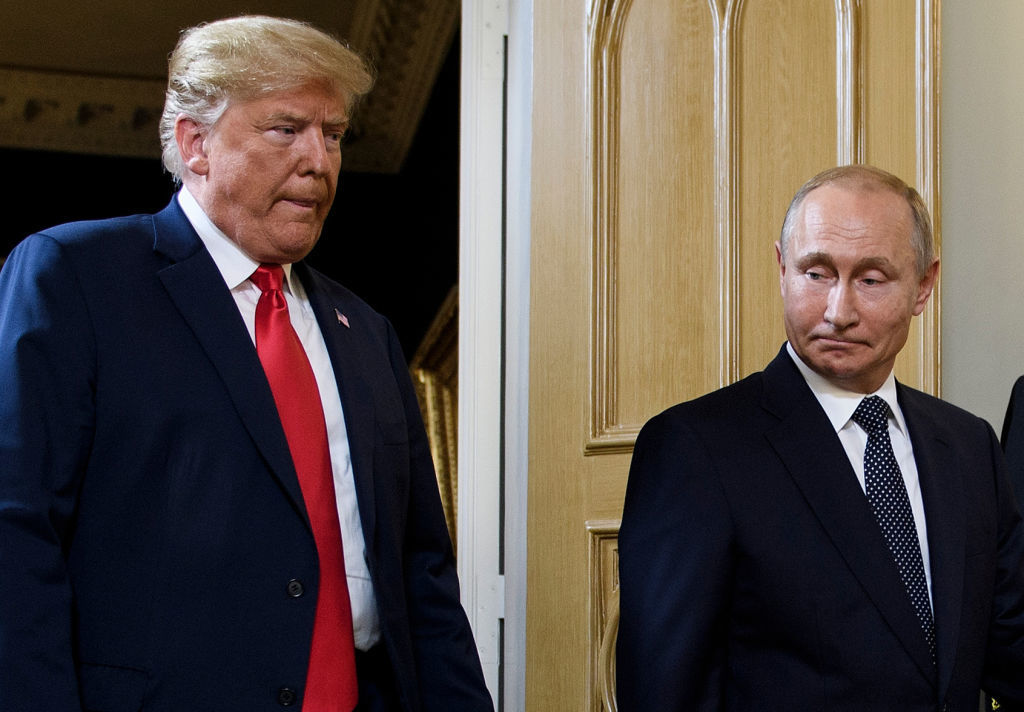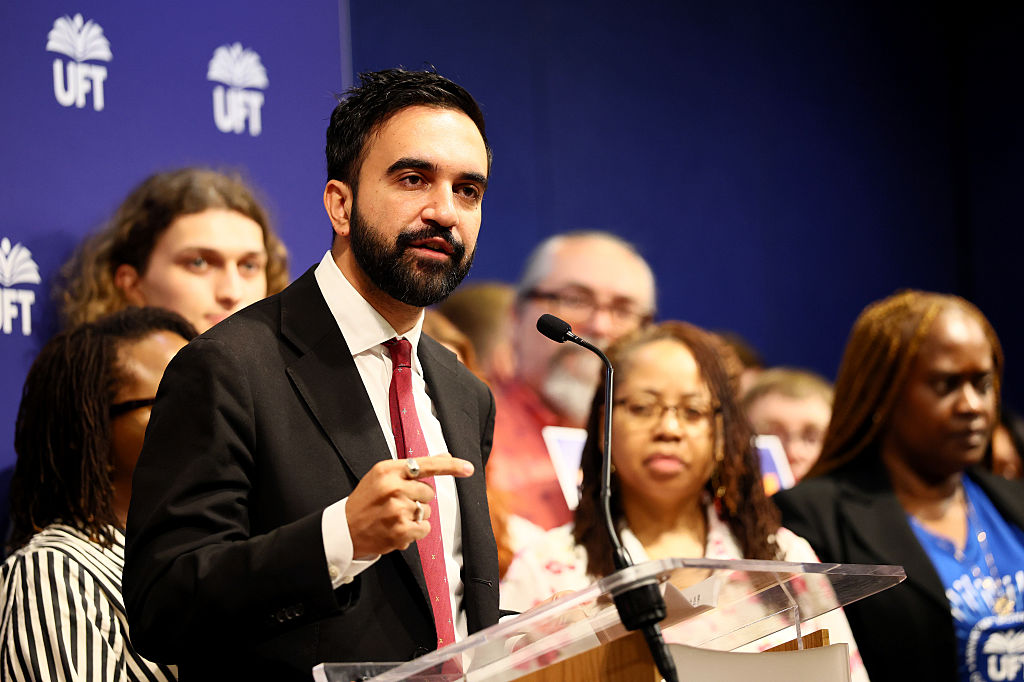For three decades, since returning from his mysterious trip to Moscow in the summer of 1987, Donald Trump has publicly railed against America’s allies. He has consistently portrayed Washington’s security partners around the world as “freeloaders” and worse. In Trump’s zero-sum worldview, which is derived from the casino business rather than diplomacy or military strategy, alliances are for chumps, at least when you’re the stronger partner.This attitude has particularly applied to the North Atlantic Treaty Organisation, which in his 18 months in the Oval Office President Trump has depicted as a scam designed to bleed America dry of dollars while lazy Europeans refuse to do their bit for the cash-strapped alliance. Trump’s dismissive attitude towards NATO was on full display during the alliance’s summit in Brussels last week. There, the American president repeatedly castigated NATO members, only five of whose 29 members meet the alleged “requirement” to spend at least two per cent of their GDP on defense (the United States leads the pack, with 3.5 per cent of GDP given to the Pentagon in 2018).In Brussels, Trump was his usual bull-bringing-his-own-china-shop self, causing offense as casually as normal heads of government shake hands, and notwithstanding his claim that the NATO summit was “truly great,” few Alliance members concur with that assessment. The summit was just one more official event which Donald Trump turned into a reality TV show, with the usual diplomatic puffery being replaced by orange-hued plate-throwing. If the president’s unstated aim was to hobble the Atlantic Alliance with mutual rage and loathing, he succeeded masterfully.As usual with Trump, his over-the-top attacks contained nuggets of veracity. Few remember that President Obama, too, tried to get NATO to spend more on defense, to no effect. His defense secretary Bob Gates, the quintessential Beltway security mandarin, seven years ago in Brussels called NATO on the carpet for embarrassingly low defense budgets. Gates warned of America’s “dwindling appetite” for being NATO’s budgetary heavy-lifter, musing that the alliance may possess a grim future with so many members “apparently unwilling to devote the necessary resources … to be serious and capable partners in their own defense.” This diatribe generated a few headlines and was quickly forgotten.Nobody will forget Trump’s show in Brussels anytime soon and, after a blazing tour of the United Kingdom which left Theresa May and her ailing government breathless, the president sallied to Helsinki for his much-anticipated summit with Vladimir Putin. Monday’s strange one-on-one meeting with Russia’s strongman, solo save translators, was impressively overshadowed by the subsequent presser. There, President Trump publicly sided with the Kremlin on the matter of Russian clandestine meddling in America’s 2016 election, throwing his own Intelligence Community under the bus in a jaw-dropping performance that’s without precedent in Western history.By the time Trump got back to the White House, the disastrousness of his Helsinki performance was obvious, so he spent Tuesday fumbling into a peculiar explanation that he had merely misspoken at the podium next to President Putin. As is his wont, Trump dealt with this self-made crisis by retreating to the safe harbor of Fox News, which in Washington these days plays a role akin to that played by Korean Central News Agency in Pyongyang. Last night, the president appeared with Tucker Carlson, the once jovially youthful bow-tired talking-head who has transformed into a fire-breathing Trump defender of obsequious proportions.The show included the host alleging that President Trump “bowed” to his own intelligence agencies like a “hostage,” but Carlson was saving his real venom for a coordinated attack on NATO. The host asked Trump, “Why should my son go to Montenegro to defend it from attack?” to which the president replied, “I’ve asked the same question. Montenegro is a tiny country with very strong people. They’re very aggressive people. They may get aggressive, and congratulations you’re in World War III.”Let’s omit the oft-encountered, vaguely homoerotic Trumpian obsession with strength. Neither shall we dwell on Trump’s glancing reference to NATO’s Article V, the collective defense provision, the alliance’s cornerstone, which the president did not mention because he presumably has never heard of it. Trump implied that Montenegro – NATO’s newest member, which joined last year – is an aggressive place which may drag America into World War III.In fact, Montenegro is a tiny country of scarcely more than 600,000 people. It’s known mostly for its sunny Adriatic beaches, and in recent centuries it hasn’t attacked anyone except rampaging Ottomans. Its military has fewer than 2,000 troops, its army is a single light infantry battalion lacking armor or modern artillery, and its “air force” is a squadron of aging helicopters. Who exactly is Montenegro going to attack?Neighbouring Serbia was far from pleased with Montenegro’s NATO accession – the two countries, having been joined (not always happily) in Yugoslavia from 1918, divorced in 2006 – since it cut off their former Adriatic coastline, leaving Serbia landlocked. However, Serbia’s mostly ramshackle military only looks impressive compared to Montenegro’s, even with Moscow’s recent gift of six MiG-29 fighters (aging aircraft to bolster Serbia’s handful of truly ancient MiG-29s that Moscow sold to Yugoslavia in the 1980s), Not to mention that nobody in Serbia wants to invade Montenegro, which Serbs view as errant kin rather than a real foe. That NATO could destroy Serbia’s military without breaking a sweat is also a mitigating factor.Where, then, does Trump’s bizarre belief that little Montenegro is a big problem for America come from? It may not be irrelevant that Moscow was very upset about that tiny Balkan country joining the Atlantic Alliance. Putin’s regime pulled out the stops to block the pro-Western government in Podgorica from entering NATO. To be fair, it was a hotly contested issue, with a significant minority of Montenegrins having misgivings about signing on to the alliance.The Kremlin did not restrict itself to its usual bag of spy-tricks – espionage, propaganda, and subversion – to keep Podgorica out of NATO. In a plot that was brazen even for Moscow, Russian military intelligence (GRU, the same service just indicted by the U.S. Justice Department for its meddling in America’s 2016 election) arranged to overthrow the Montenegrin government and assassinate its leadership. GRU operatives got caught through sloppy tradecraft, but the Kremlin’s obsession with that little country remains.Suggesting that Americans may soon fight World War III for NATO’s newest member isn’t merely silly. It unsettlingly resembles Kremlin propaganda. Just like President Trump’s binary tweet today implying that the West’s only choice is kowtowing to Putin or facing nuclear war with Russia. That hoary Kremlin trope will be familiar to those who remember the Cold War. On the eve of the last world war, the French left-winger Marcel Déat famously asked: Why die for Danzig? (Pourquoi mourir pour Danzig?), musing why Paris would fight for a far-away city that was contested between Poland and Nazi Germany. Fittingly, Déat soon became a Nazi collaborator, and France, like Britain, did indeed go to war for Poland in September 1939.Podgorica is not Danzig, and there is no presently plausible scenario in which Montenegro drags NATO into a major war. Moscow, for all its “brother Orthodox Slav” bluster, knows the price it paid the last time Russia got dragged into a Balkan war by mad Serbian terrorists. However, Putin’s regime would like Westerners to think that risk is real. So, oddly, does the American president.
Why did Trump choose to parrot Putin on Montenegro?
The tiny Balkan country of scarcely more than 600,000 people is known mostly for its sunny Adriatic beaches – so why is Trump portraying it as a threat?

For three decades, since returning from his mysterious trip to Moscow in the summer of 1987, Donald Trump has publicly railed against America’s allies. He has consistently portrayed Washington’s security partners around the world as “freeloaders” and worse. In Trump’s zero-sum worldview, which is derived from the casino business rather than diplomacy or military strategy, alliances are for chumps, at least when you’re the stronger partner.This attitude has particularly applied to the North Atlantic Treaty Organisation, which in his 18 months in the Oval Office President Trump has depicted as a scam designed to bleed…
























